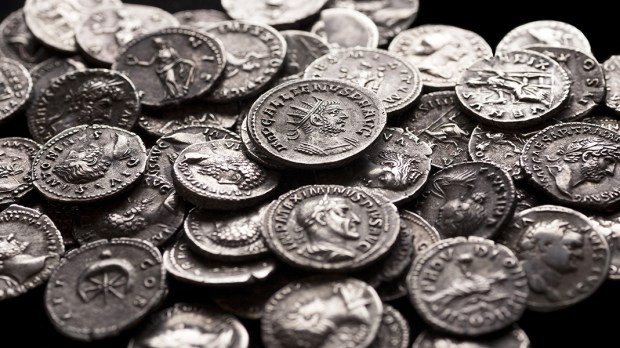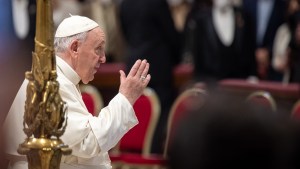Today’s readings can be found here.
Peter’s dangerous question about how much to forgive has us all obligated to heed Jesus’ answer, which speaks of infinite forgiveness,
“‘Lord, if my brother sins against me, how often must I forgive him? As many as seven times?’ Jesus answered, ‘I say to you, not seven times but seventy-seven times.’”
We should point out that Jesus didn’t simply indicate an infinite measure of forgiveness, but he supported this excess of his with the story he tells in today’s Gospel.
A man has a large debt—so large, in fact, that the only way the king has to collect it is to sell the man, along with his entire family. Yet the man’s plea is enough to completely change the consequences of this terrible debt.
“At that, the servant fell down, did him homage, and said, ‘Be patient with me, and I will pay you back in full.’ Moved with compassion, the master of that servant let him go and forgave him the loan.”
Those who have gone through a similar traumatic experience should at the very least be struck by such a story. Seeing such a large debt forgiven should make us at least grateful and different people.
But Jesus continues his story, saying that the pardoned servant, after leaving the interview that saved his life, encounters a man like himself who owes him a very trivial amount. But when his friend begs for understanding, the servant responds with a sharp refusal and has his friend thrown into prison until that trivial debt is settled.
So great is the injustice he has done that the king learns of it. He sends for him and says,
“You wicked servant! I forgave you your entire debt because you begged me to. Should you not have had pity on your fellow servant, as I had pity on you?”
This is why we should always forgive; because we ourselves have been greatly forgiven first. The problem, however, is very simple: Do we ever realize how much mercy we have received?
~
Father Luigi Maria Epicoco is a priest of the Aquila Diocese and teaches Philosophy at the Pontifical Lateran University and at the ISSR ‘Fides et ratio,’ Aquila. He dedicates himself to preaching, especially for the formation of laity and religious, giving conferences, retreats and days of recollection. He has authored numerous books and articles. Since 2021, he has served as the Ecclesiastical Assistant in the Vatican Dicastery for Communication and columnist for the Vatican’s daily newspaper L’Osservatore Romano.



